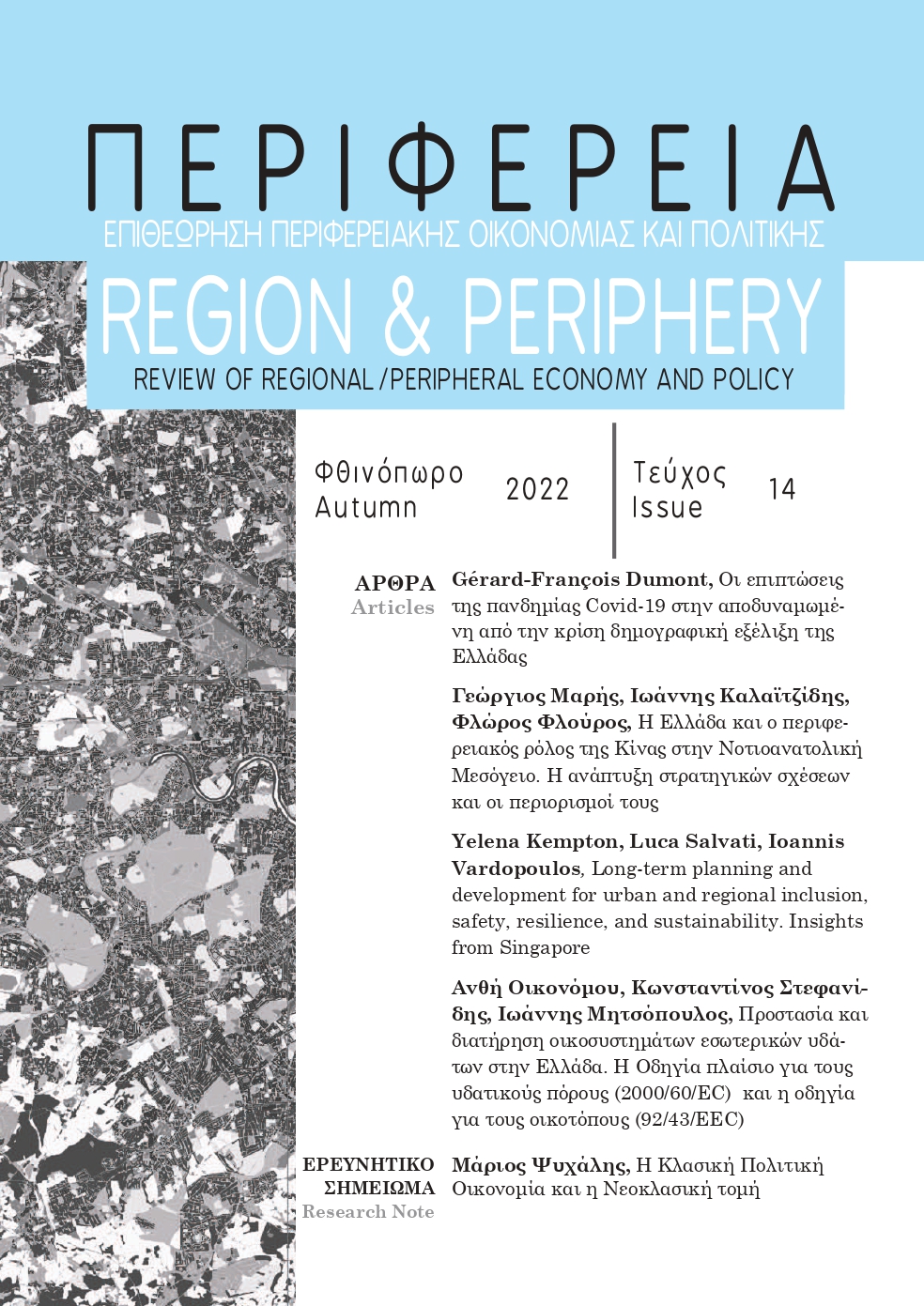Greece and China’s regional role in the Southeast Mediterranean. The development of strategic relationships and their limitations
Abstract
With this article we aim to study China’s regional role in SE Europe by highlighting its strategic relationship with Greece and at the same time explore the limits of its influence. As we will argue, China as a regional power has tried to increase its influence in SE Europe through the development of its strategic relationship with Greece, without however trying to challenge the influence of other powers in the region. At the same time, the liberal spirit of the EU and competition between member states to attract Chinese capital is the Achilles heel of the EU’s unified stance towards China. Although the bulk of Chinese FDI is directed to the stronger countries of the association, investments in strategic sectors in smaller regional countries such as Greece are of particular concern due to the potential political leverage through initiatives such as the BRI and “17+1”.
Article Details
- How to Cite
-
Maris, G., Flouros, F., & Kalaitzidis, I. (2023). Greece and China’s regional role in the Southeast Mediterranean. The development of strategic relationships and their limitations. Perifereia | Regional Integration: Politics, Economics, Governance, 14(14), 33–57. https://doi.org/10.12681/rp.32606
- Section
- Research Articles

This work is licensed under a Creative Commons Attribution-NonCommercial 4.0 International License.
Authors who publish with this journal agree to the following terms:
· Authors retain copyright and grant the journal right of first publication with the work simultaneously licensed under a Creative Commons Attribution Non-Commercial License that allows others to share the work with an acknowledgement of the work's authorship and initial publication in this journal.
· Authors are able to enter into separate, additional contractual arrangements for the non-exclusive distribution of the journal's published version of the work (e.g. post it to an institutional repository or publish it in a book), with an acknowledgement of its initial publication in this journal.
· Authors are permitted and encouraged to post their work online (preferably in institutional repositories or on their website) prior to and during the submission process, as it can lead to productive exchanges, as well as earlier and greater citation of published work.



